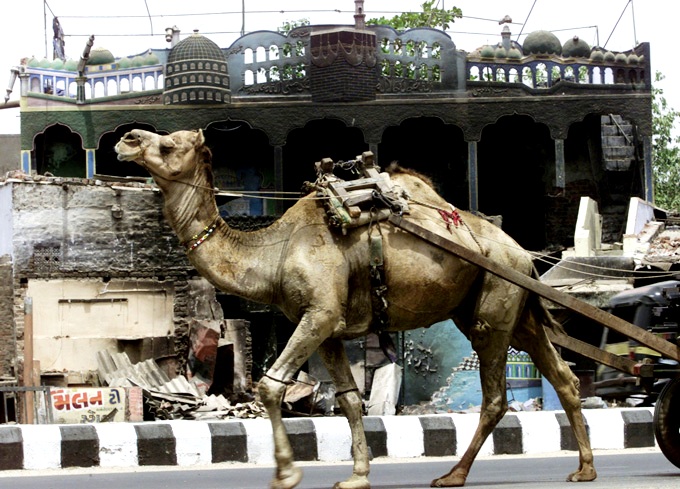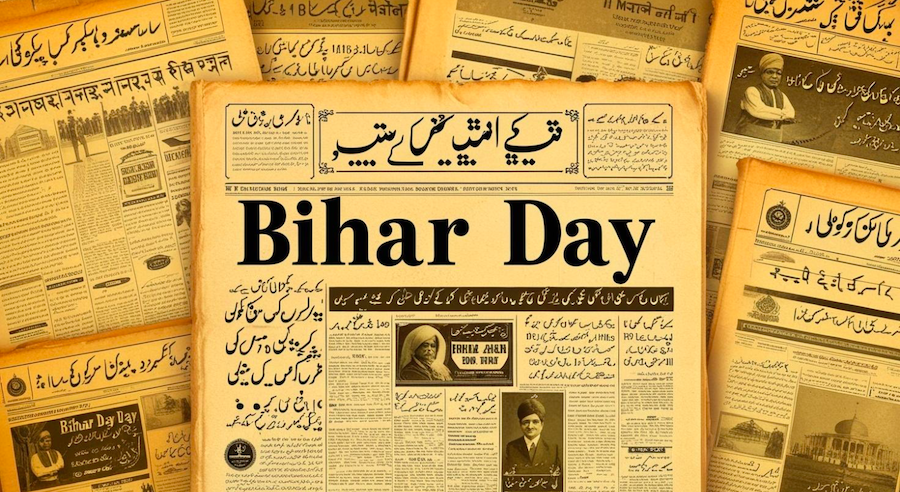The public discourse on secularism should continue as long as religious prejudice and discrimination afflicts the country…
Abdul Khaliq
BIHAR CHIEF Minister Nitish Kumar’s recent statement that the prime minister of this country must be secular — the ultimate truism — has triggered a furious war of words in the media and cyberspace regarding the relevance of keeping the secularism debate alive. A piece authored by well-known columnist Tavleen Singh in The Indian Express (Not ‘Secularism’ Again) calls on the nation to “stop this silly talk of secularism and communalism”.
She contends that the public discourse on secularism is only a ploy to keep the BJP out of power; that it is a pointless debate because there has been no major riots (her only touchstone for gauging communalism) since 2002 despite repeated terrorist attacks by “Muslims next door” (not Pakistanis, mind you); that 24-hour news channels have ensured against riots; that the issue of secularism is an insignificant factor in elections, as proved by the massive mandate given to Rajiv Gandhi in 1984 despite the Sikh pogrom; that the nation’s emphasis should be on job creation, healthcare, cleaning up the educational system (the implication being that these pursuits and secularism are mutually exclusive). She concludes her shabby analysis by exhorting us to stop holding secularism as a shining ideal as its relevance faded a long time ago.
However, bluntly contradicting her core proposition about the demise of communalism is the devastating news item that appeared last week in another leading national daily regarding housing apartheid against Muslims in New Delhi — the nation’s capital that mirrors our society’s strengths and weaknesses.
If communalism is buried and done with, why is it that when a bomb explodes and kills innocents, cold fear grips the entire Muslim community? Everybody knows that terrorism claims affinity to a host of faiths and ideologies, but the invariable reaction to an act of terrorism is to round up scores of Muslims, incarcerate and torture them.
A recent study by the Tata Institute of Social Sciences, commissioned by the Maharashtra State Minorities Commission, found that although Muslims account for 10.6 percent of the population, they comprise 36 percent of the prison population. Among the reasons cited for the disproportionate number of Muslims in jail was, remarkably, “conflict with the police”. These inmates “view the police as an unjust system using unfair methods in the performance of their duties”. The police’s bias against Muslims led to a number of arrests under the erstwhile Terrorist and Disruptive Activities (Prevention) Act, the Maharashtra Control of Organised Crime Act, and even the Official Secrets Act. This is the normal “collateral damage” that this minority group has to endure in the misdirected fight against terrorism. Such colossal injustice has become a routine occurrence in the life of the nation.
As the home of one of the world’s great religions, we in this country have prided ourselves on our tolerance and respect for every religion. And yet, 10 years after more than 400 masjids and dargahs that were destroyed during the horrible Gujarat carnage of 2002, they remain broken, vandalised and defiled. It is reported that one of the preconditions set by the villagers for the safe return of the victims from the relief camps was that their places of worship would not be repaired or constructed again. The Narendra Modi government has flatly refused to rebuild these religious places, although the world knows that the destruction of these shrines was the direct consequence of the state-abetted pogrom against a community.
Challenging the Gujarat High Court verdict that damage to religious structures was the result of the state’s “inaction and negligence”, the Modi government has now petitioned the Supreme Court with the most bizarre, twisted logic that repairing the structures would violate Article 27 of the Constitution, which does not permit the State to utilise taxpayers’ money for promoting a particular religion. Clearly, the underlying factor for Modi’s recalcitrance on the issue is his firm belief that keeping alive his image as a Muslim baiter enhances his popularity in a deeply polarised society.
Former British prime minister Clement Atlee had famously remarked that “conflicts begin in the minds of men”. Every act of mass violence is the culmination of a pattern of thought that is rooted in hatred. Today, the most deviant anti-minority ideas designed to promote bigotry and religious fanaticism are being freely aired in the public space. However, the scariest of all is the indoctrination of the young in the gospel of hate. Apart from the scores of Shishu Mandirs, we have nearly 30,000 Vidya Bharati Schools whose declared objective is to “develop a national system of education which would help to build a generation of young men and women that is committed to Hindutva and infused with patriotic fervour”.
It is well-known that votaries of Hindutva in its most virulent form have infiltrated different institutions of governance, even the army. It may be recalled that the key conspirator in the 2008 Malegaon blast was a serving armyman, Lieutenant Colonel Shrikant Prasad Purohit. The Bhonsala Military School in Nashik, which was used as a training ground of the Malegaon conspirators, continues to flourish. There are more than 40,000 Rashtriya Swayamsevak Sangh shakhas across the length and breadth of the country. When one considers that one of the primary missions of all these institutions is to create and breed distrust and hatred of the minorities, it is clear that our founding fathers’ cherished dream of a secular, egalitarian polity is under grave threat.
IN 21ST century India, religious bias is still a massive factor in determining one’s opportunities and life chances. The reports submitted by the Sachar Committee and the Ranganath Misra Commission have graphically described the plight of minorities and the persistent inequality in employment, housing, credit markets, education and a wide range of other social domains. The sad reality is that on account of communal polarisation of the public space, certain minority groups are unable to access the opportunities available, leading to their continuing isolation and ghettoisation.
Even Tavleen Singh’s view that there have been no major riots since 2002 is belied by facts on the ground. As recently as last month, there were two fairly major communal riots in Uttar Pradesh. The Karnataka Minorities Commission has reported that there is planned violence committed against minority groups in the state on a regular basis. A riot-free India is still a chimera. According to Union home ministry data, there have been as many as 6,541 communal clashes between 2001 and 2009. While it is true that most of these disturbances have been minor in intensity, the situation has the very real potential of exploding into a major conflagration in case of a deeply surcharged and emotive happening.
Seeking an end to the secularism debate is, in effect, a ruse to smother any concerted action on the problems faced by minorities, who remain among the most vulnerable sections in our society. Jawaharlal Nehru had spoken fervently about protecting the minorities and had cautioned, that by virtue of numbers and in other ways, “it is the responsibility of the dominant community not to use its position in any way which might prejudice the secular ideal of the nation”. To modify what Martin Luther King Jr said, we need a nation where a man is not judged by his religion but by the content of his character. Unfortunately, we are nowhere near creating a society that is free of religious prejudice and discrimination. Until we do so, the secularism debate must be in the forefront of public consciousness.
(The author, a former civil servant, is Secretary General of Lok Janshakti Party and can be contacted on akhaliq2007@gmail.com and this article was first published in Tehelka)










